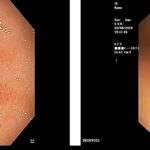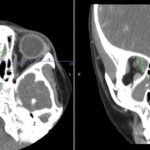In a study, El Bannoudi et al. found that platelets contribute to the pathogenesis of SLE by secreting the proinflammatory platelet-associated lectin, galactoside-binding, soluble 3 binding protein (LGALS3BP), which also represents a novel biomarker of SLE clinical activity.

Psoriatic Arthritis Drugs at a Glance, 2023
Biosimilars have become a therapeutic turning point for many patients who are living with rheumatic illnesses. Psoriatic arthritis (PsA) is a complex, multi-faceted chronic inflammatory musculoskeletal and skin disease where the treatment has changed considerably over the past few years. Psoriatic arthritis has an impact on about 30% of people with psoriasis.1 In 2019, the…

Litifilimab Promising for Cutaneous Lupus Erythematosus
A study found that litifilimab, a humanized monoclonal antibody that binds blood dendritic cell antigen 2, may be effective for the treatment of patients with active cutaneous lupus erythematosus. The treatment successfully reduced skin disease activity in patients at 16 weeks compared with placebo.

Research Update: Using Vagus Nerve Stimulation for Rheumatic Disease
Over the past decade, a number of pilot studies have provided proof of concept for the use of vagus nerve stimulation (VNS) to treat rheumatic conditions. The studies represent an expansion of this treatment approach into rheumatology, building on years of scientific inquiry into the mechanisms of VNS on disease states that led to preclinical…

ACR Image Competition 2022 Results, Part 5
Resolution of GAVE After aHSCT for Progressive Systemic Sclerosis A 30-year-old man with RNA polymerase III (Pol III)-positive, diffuse, progressive systemic sclerosis had a persistent microcytic anemia with a hemoglobin level of 8 g/dL and evidence of gastric antral ventral ectasia (GAVE) on gastroscopy. He underwent autologous hematopoietic stem cell transplantation (aHSCT). After six months,…

Case Report: GPA or IgG4-Related Disease in an 11-Year-Old Girl?
Granulomatosis with polyangiitis (GPA) is a type of anti-neutrophil cytoplasmic antibody (ANCA) associated small vessel vasculitis that typically affects the kidneys, lungs and sinuses.1 Due to an overlap in signs and symptoms, GPA may initially be difficult to distinguish from IgG4-related disease, another condition that can affect multiple tissues and has variable presentations. Further complicating…
Anti-P. copri Antibody Responses in Patients with RA
Background & Objectives Rheumatoid arthritis (RA) is a chronic autoimmune disease associated with immune responses to the patient’s own antigens and characterized by inflammation and substantial joint destruction. Prevotella copri, a gut commensal bacterium, has been reported to be an immune-relevant organism in individuals with RA. This study sought to evaluate antibody responses to anti-P….

Diet May Help Reduce Inflammation in RA
In a small study, an anti-inflammatory diet helped reduce pain and swelling in a subset of people with rheumatoid arthritis (RA). Diet changes are complementary to standard treatment. Diet-related research can be challenging, but many patients with RA are motivated to try healthy changes.

What We Know about COVID-19 in 2023: Variants, Vaccines, New Therapies & More
Although a less central focus than it was three years ago, rheumatologists must still consider the prevention and management of SARS-CoV-2 in their patients. The following update shares ongoing considerations related to the COVID-19 pandemic. Outcomes At the beginning of the pandemic, it was unclear whether patients with rheumatic disease would be at higher risk…

Long COVID: Experts Weigh in on Increasingly Common Syndrome
A minority of patients experience lingering symptoms after infection with SARS-CoV-2, similar to some other previously known post-infection syndromes. Although we are just beginning to understand the different presentations, pathophysiology, risk factors, prognosis and treatment of long COVID, rheumatologists can play a leadership role in managing patients with the illness and contributing to this important research…
- « Previous Page
- 1
- …
- 43
- 44
- 45
- 46
- 47
- …
- 351
- Next Page »